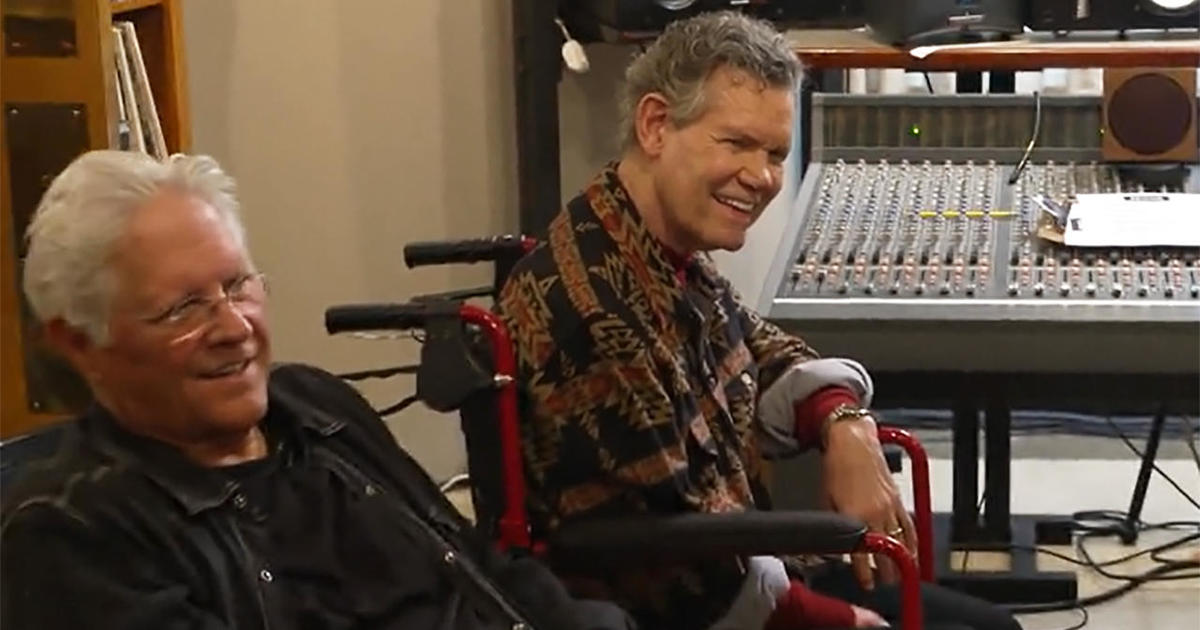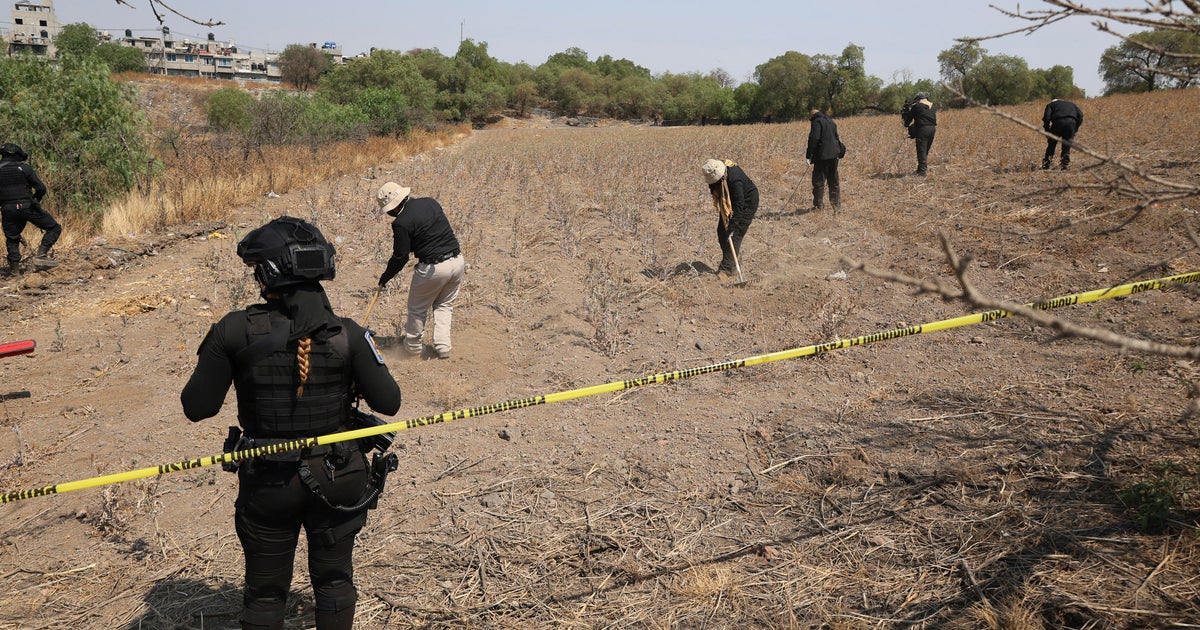Transcript: Mexican Ambassador to the U.S. Martha Bárcena Coqui on "Face the Nation," June 9, 2019
The following is a transcript of the interview with Martha Bárcena Coqui, Mexico's ambassador to the U.S., that aired Sunday, June 9, 2019, on "Face the Nation."
MARGARET BRENNAN: Welcome back to "Face the Nation." Joining us now is the Mexican Ambassador to the United States, Marta Bárcena Coquí. She was part of the Mexican negotiating team working to prevent the Trump Administration from imposing tariffs on Mexico. Good to have you here. Your president held a rally in Tijuana last night. But, President Trump tweeted this morning that tariffs aren't totally off the table. Is it too soon to celebrate?
MARTA BÁRCENA COQUI, MEXICAN AMBASSADOR TO THE UNITED STATES: Good morning, Margaret. I'm really thrilled to be here in FACE THE NATION. And yes, we were following the rally yesterday at Tijuana, with the saying "Mexico united is stronger," and we want friendship and dialogue with the United States. So the idea of the rally was to inform the declaration that we agreed to and saying we avoided the imposition of tariffs and we want to continue to work with the US very closely on the different challenges that we have together. And one urgent one at this moment, is immigration.
MARGARET BRENNAN: And this is just a declaration of principles. This isn't a signed agreement.
AMB. BÁRCENA COQUI: It- it's a joint declaration of principles, which is the base- that gives us the base for- for the roadmap that we have to follow in the incoming months on immigration and cooperation on asylum issues and development in Central America.
MARGARET BRENNAN: So in 90 days negotiators will reconvene according to this announcement. There's a 90 day timeline. How quickly do you- does your country think that you will see a drop off in these migrants?
AMB. BÁRCENA COQUI: We will deploy the National Guard from Monday. I want to explain that this deployment will take place now because until two weeks ago, we were still discussing the laws to implement the National Guard. So the deployment throughout the country has been- has already begun and it will increase next Monday. So we will see how the results of the deployment of the National Guard which by the way, is not similar to the National Guard of the US. It is not like the National Guard of the US it is a- it is a police force based on the models of the European military police like the Carabinieri, like the Gendarmerie, like the Guardia- Guardia Civil Española. So we have to understand that when people talk about deployment of troops, they are wrong. What we are deploying is a police force, and we are deploying it to put order in the borders.
MARGARET BRENNAN: And you have said--
AMB. BÁRCENA COQUI: And we would hope that these will bring results in- in a very relative short term, like in a month or a month and a half.
MARGARET BRENNAN: Well for the past three months, there have been more than 100,000 migrants crossing the US border last month alone, 132,000 apprehensions. That was up 30 percent. Did the Trump Administration give you hard numbers? Say we need to see a 30 percent decrease before we go back to putting a tariff threat on the table?
AMB. BÁRCENA COQUI: No, what we talked was that the numbers have to go down like to previous levels that we had maybe last year or in 2018. What we are seeing is that these surge of migrants really it was totally unexpected both for Mexico and for the US. If you think that one- almost 1 percent of the Honduran population has left the country in the last five months and the same for what Guatemala, then you have to realize that we are really in- in front of a humanitarian tragedy and that is why we need to address the humanitarian tragedy with the elements that were put on in the declaration, the enforcement search and enforcement of Mexican migratory loss, the expansion of the MPP. Then we will continue to have technical talks almost weekly and then to evaluate constantly what is going on in these 90 days and then the commitment to cooperate--
MARGARET BRENNAN: Right.
AMB. BÁRCENA COQUI: --with Central American countries for their development and prosperity.
MARGARET BRENNAN: So it sounds like there are a lot of details that will still be worked out and how this is actually going to work. What are some of these side agreements that the president is tweeting about?
AMB. BÁRCENA COQUI: I- I think there are a lot of the detail- details that we discussed during the negotiations and during the conversations that we didn't put in the declaration because this is different- different paths that we are to follow. Let's say- we even discuss, at a certain time, how to put more emphasis in the rural areas of Central America, where 60 percent of the migrants are coming from. So- and we have been putting more effort on security and good governance and- and in training police, but very little in the rural areas. So this is the kind of things that we will continue to work.
MARGARET BRENNAN: Very quickly though, was there any kind of agreement by your government to buy agricultural products?
AMB. BÁRCENA COQUI: It is our understanding that without tariffs and with USMCA ratification, there- there will be an increased rates, both in agricultural products and manufactured products. Even now--
MARGARET BRENNAN: But nothing that was actually agreed to as part of this negotiation, because the president's been tweeting, saying that Mexico agreed to buy all sorts of agricultural products.
AMB. BÁRCENA COQUI: I would- what I would say, is that even now, we are the second buyer of the--
MARGARET BRENNAN: Right.
AMB. BÁRCENA COQUI: --US grains and- and meat and this. We have an integrated economy in the agricultural sector.
MARGARET BRENNAN: Of course.
AMB. BÁRCENA COQUI: We export fruit and vegetables to the U.S., also contributing to a healthier diet in the U.S., and we bet- we buy, basically, grains and meat, so--
MARGARET BRENNAN: So nothing new?
AMB. BÁRCENA COQUI: --the trends are already there. So what we are expecting without the tariffs is an increase. You have to remember that until last year we were the third trade partner. We are now the first. So we are your most important market and you are our most important market. Our- is trade on agricultural products going to grow? Yes, it is going to grow, and it is going to grow without tariffs and with USMCA ratification.
MARGARET BRENNAN: But there was no transaction that was signed off on as part of this deal is what I understand you're saying.
AMB. BÁRCENA COQUI: I'm say--
MARGARET BRENNAN: You're just talking about trade.
AMB. BÁRCENA COQUI: I'm talking about trade--
MARGARET BRENNAN: Understood.
AMB. BÁRCENA COQUI: --and I am absolutely certain that the trade in agricultural goods could increase dramatically in the next few months.
MARGARET BRENNAN: Alright, Ambassador, thank you for joining us--
AMB. BÁRCENA COQUI: Thank you very much.



